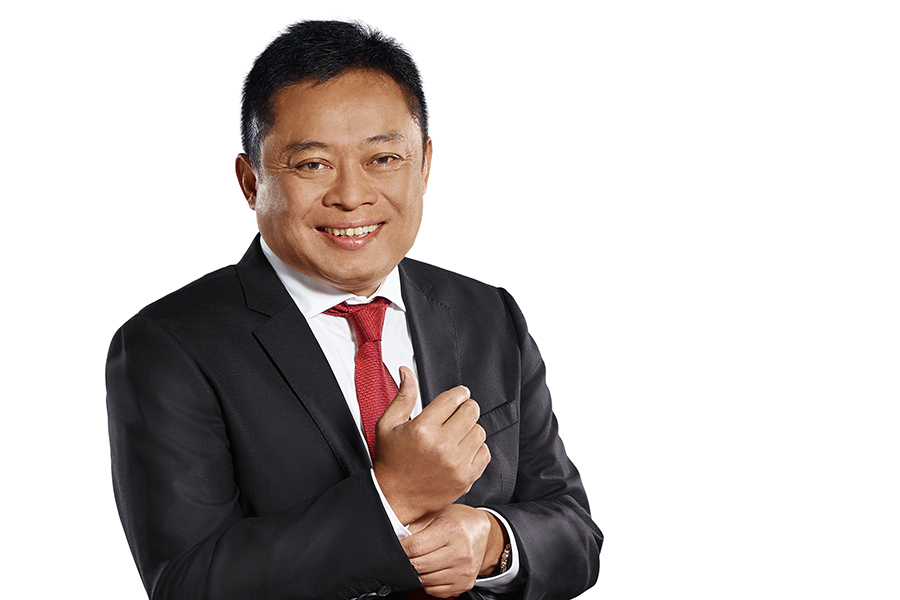
In 2020, Telkom continues to strengthen digital connectivity, accelerate digital platform and develop digital service, to deliver the best customer experience
PT Telkom Indonesia (Persero) Tbk (Telkom Indonesia), Indonesia’s largest telecommunication provider, is one of the dominant telecommunication companies in the world. Ririek Adriansyah, President Director of Telkom Indonesia discusses the company’s plan to accelerate digital platform and build digital service, as well as plans to wire the country’s new capital in Borneo.
What innovation are you focusing on?
As demand for broadband services continues to grow, with shifts in consumer behavior due to the adoption of digital lifestyles by the consumer segment and ICT solutions in the corporate segment, the telecommunication industry is anticipating this and strategically shifting towards the digital world. Telkom observes that these dynamics are apparent in three digital business domains, namely digital connectivity, digital platforms, and digital services. As the dominant provider of broadband services in Indonesia, Telkom continues to strengthen its position as a market leader in the digital connectivity domain by presenting quality services with the widest coverage. Telkom has also accelerated its digital platform domain by developing data center & cloud services, followed by the provision of a smart platform that runs on them as an enabler of various ICT services and solutions. Furthermore, digital service products will be selectively developed, including through acquisitions and partnerships, supported synergistically by the digital platforms and digital connectivity that have been developed to give the best customer experience.
What role will Telkom play in the building of digital infrastructure for the new capital of Indonesia?
The new capital, locally called Ibu Kota Negara (IKN), on the island of Borneo is being planned to incorporate the island’s unique terrain, which sits alongside one of the largest primary tropical rainforests in the world. IKN’s concept will utilize green and smart city concepts. It will be built through a combination of a broadband fiber network and 5G large capacity mobile, which can support smart city services using IoT, Big Data, and AI. Telkom will provide the platform to the fiber optic infrastructure and other broadband services. As a state-owned enterprise in the field of ICT, we will collaborate with relevant parties such as other state-owned enterprises, private sectors, ministries, and government authorities.
President Joko Widodo stated that the digital economy was one of the promising investment sectors in Indonesia. What role will Telkom play for that sector?
Indonesia is the fastest – growing and largest digital economy in Asia. In 2015, Indonesia’s digital economy was worth USD8 billion, and by 2019 it had gone up to USD40 billion. In 2025, the value is predicted to reach USD133 billion. President Joko Widodo also stated that Indonesia was the number five most active startup ecosystem in the world after the US, India, the UK, and Canada. Startup companies have been driving digital economy growth in Indonesia, as it has more than 2,000 startups. This makes Indonesia as the largest digital economic potential market in Southeast Asia.
Telkom Indonesia has a venture capital (MDI, PT. Metra Digital Investama), one of the biggest VC in the region that has already invested in around 40 digital startups globally (series-A, series- B, series-C, until pre-IPO), including Kredivo, Geniee from Japan, and Whispir Australia. Moreover, Telkom Indonesia has developed almost 90 startups, locally and within the company itself.
There is an investment opportunity that MDI through their subsidiaries like MDI Singapore can manage fund from investors from outside of the region that has limited knowledge on investing in digital startups in Indonesia and/or ASEAN. In addition to managing Telkom Funds, currently, MDI is also active in managing funds from other investors (Singapore, Korea, Indonesia’s state-own enterprise, etc.). MDI position itself as GP (general partner) or co-GP, and investors as LP (limited partner) or co-LP.